The Egyptian genomics scientist, Dr. Haitham Shaaban visits Ain Shams University
Within the framework of developing scientific and research cooperation between various international universities, Ain Shams University hosted the Egyptian Scientist Dr. Haitham Shaaban, associate professor of biophysics, and director of a research project at the Agora Center for Translational Cancer Research, and the Faculty of Medicine Hospitals at the Universities of Geneva and Lausanne in Switzerland.
His most recent research deals with monitoring the movement of the genome and new structures in the living cancer cell, which leads to the possibility of predicting and diagnosing cancer in its early stages.
Dr. Shaaban is one of the chairmen of the scientific conference organized by the Federation of American Societies for Experimental Biology and to be held in Ghana at the end of August, along with the American scientist of Ghanaian origin, Kwezi Egbelik, Director of the Sina Institute of Science and Technology in Ghana, and the American scientist, Thomas Brooker, Professor of Genetics. and molecular biology at the University of Alabama, USA.
 |
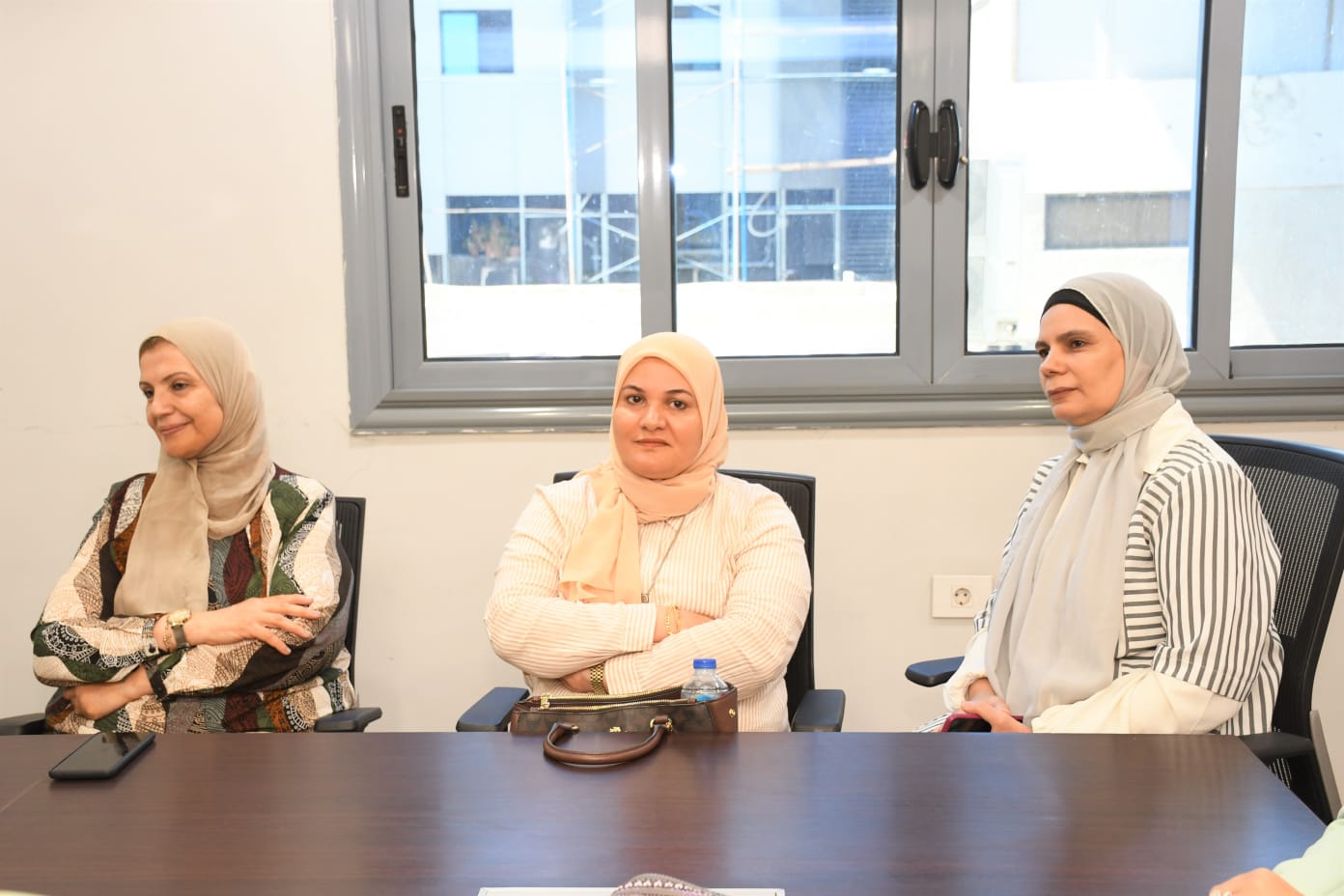 |
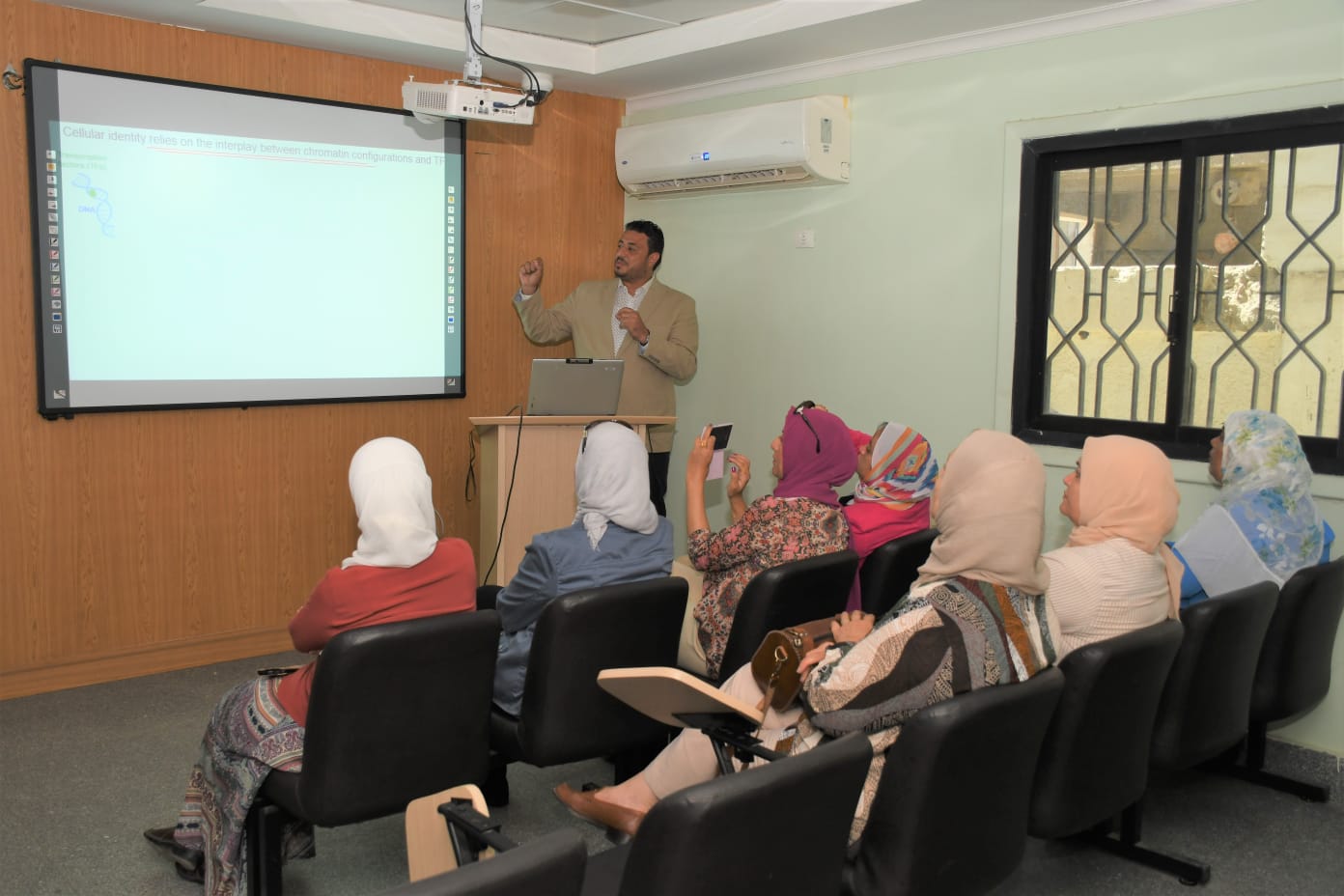 |
||
The activities of his visit to the Research Center of the Faculty of Medicine, Ain Shams University (MASRI) began with a scientific discussion attended by Prof. Hesham El-Ghazaly, Professor of Oncology and Director of the Research Center of the Faculty of Medicine, Ain Shams University (MASRI).
He also talked about the role of this technology in diagnosing genetic diseases in personalized medicine and understanding the details that contribute to healthy cells losing their identity to turn into cancer cells.
The meeting was followed by an important scientific lecture delivered by Dr. Haitham Shaaban at the Research Center of the Faculty of Medicine, Ain Shams University, dealt with "Chromatin Features Based on Single-Cell AI Imaging for Cancer Diagnosis and Precise Functional Oncology" in the presence of faculty members from the university faculties.
His visit to the Research Center of the Faculty of Medicine, Ain Shams University (MASRI) concluded with a visit to the various units of the center.
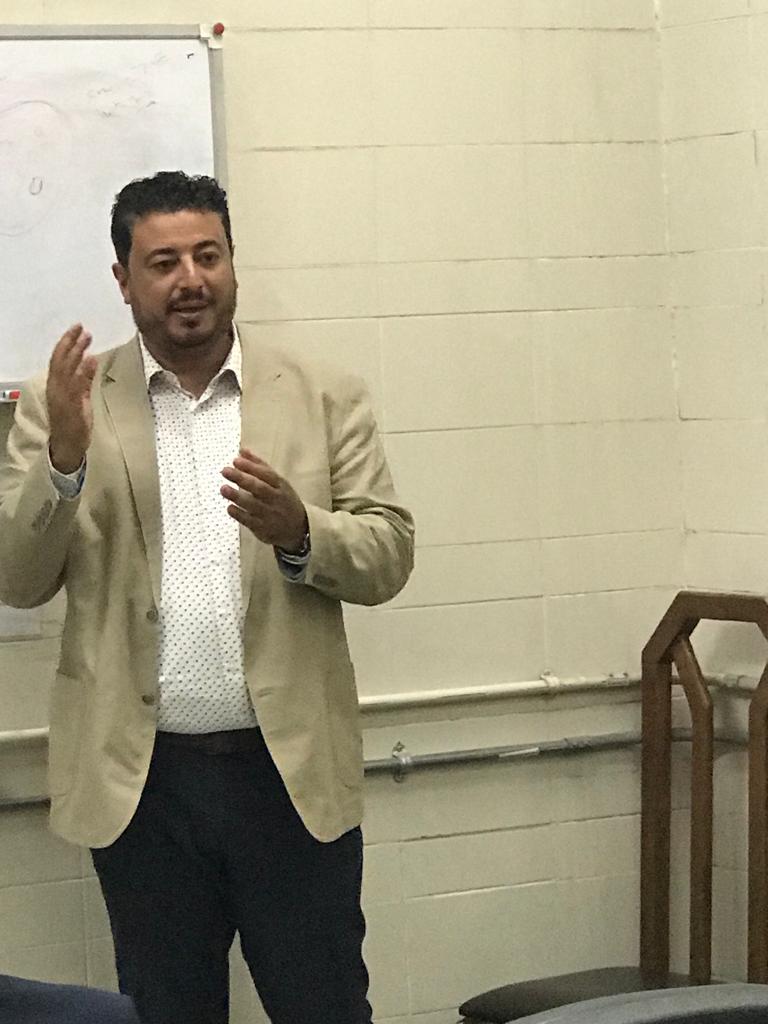 |
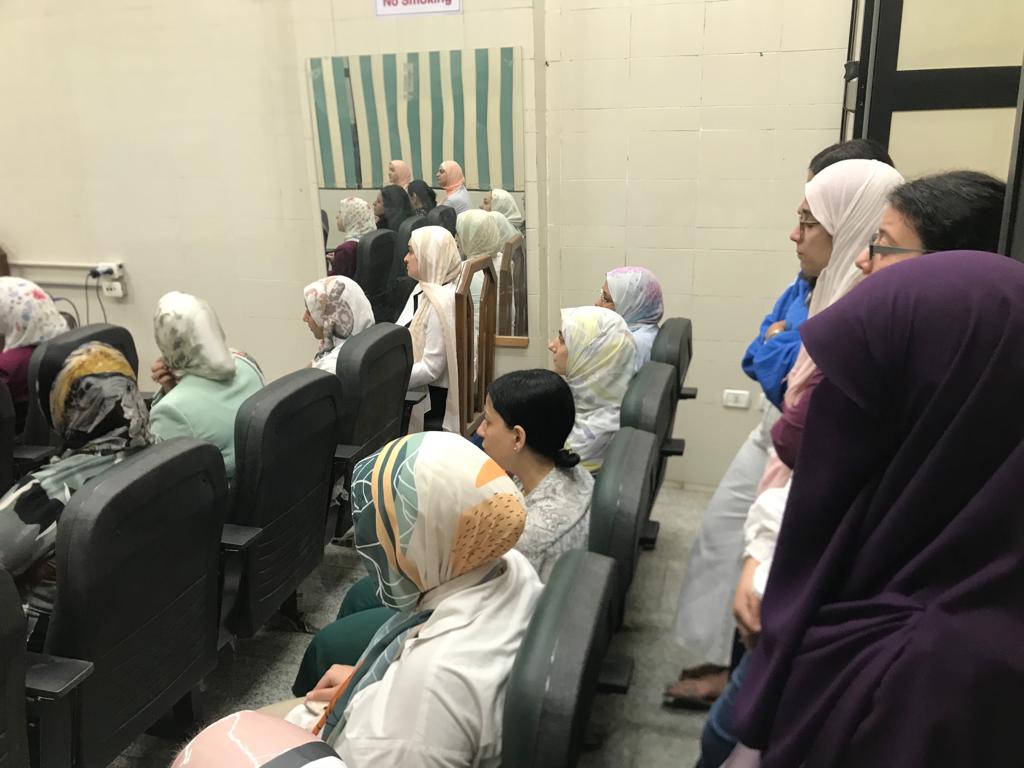 |
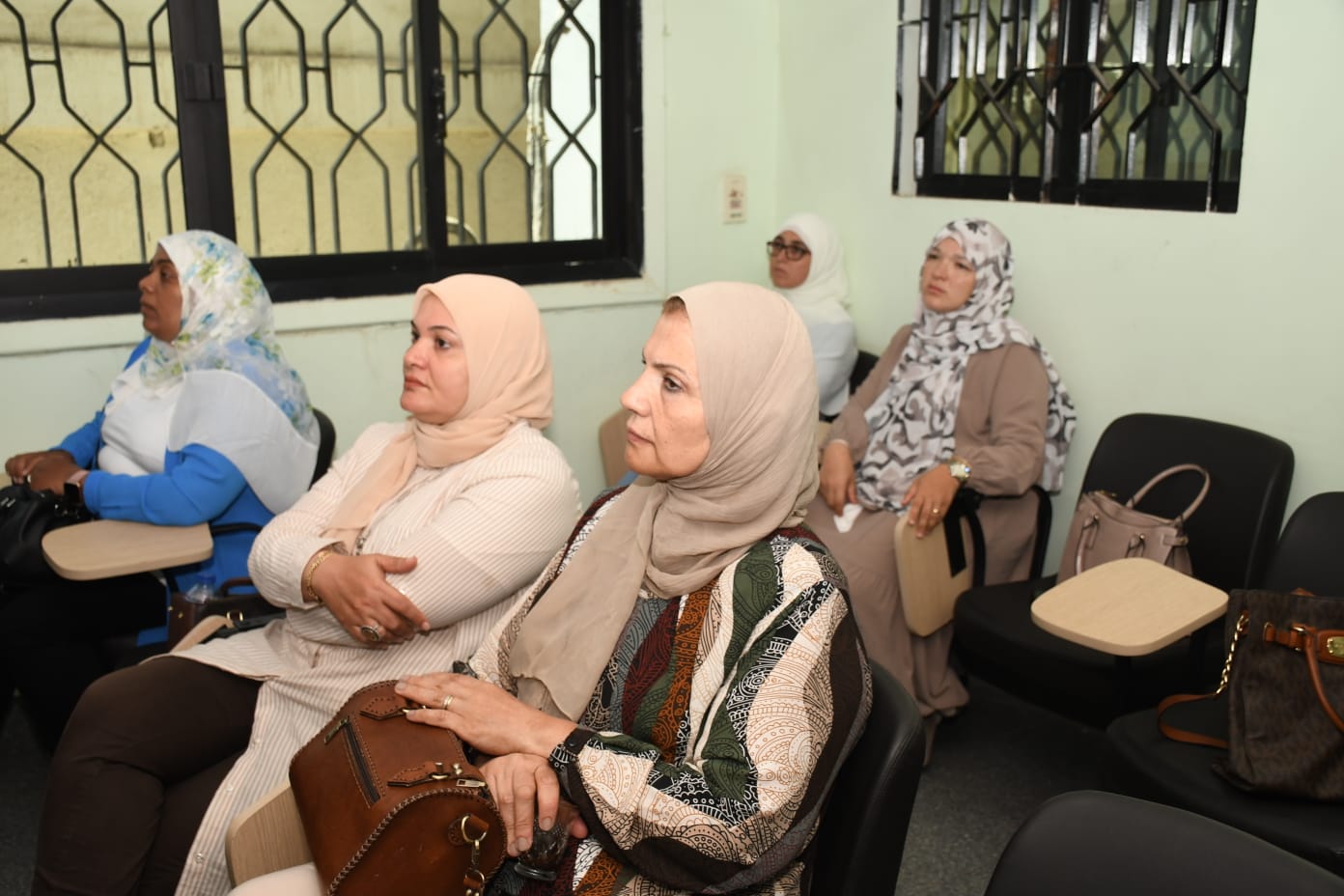 |
||
After that, Dr. Haitham Shaaban, was accompanied by the Faculty of Pharmacy team, and Dr. Abdullah Sami, Assistant Professor at the Ain Shams Medical Research Center and General Supervisor of the Envoys Welfare Office, and visited the Drug Discovery Research Center at the Faculty of Pharmacy, Ain Shams University, where they were received by Prof. Dr. Khaled Abu Shanab, Vice Dean for Postgraduate Studies and Research.
During his visit to the Faculty of Pharmacy, Dr. Haitham Shaaban met many of the college's faculty members, where they exchanged scientific discussions on various topics related to cancer and the developments made by the world in detecting the disease.
This visit came within the framework of exchanging experiences and transferring advanced technologies in the field of biophysics and their applications in diagnosing cancerous diseases.
In this context, Dr. Haitham Shaaban expressed his pleasure in cooperating with Ain Shams University and exchanging experiences with faculty members and researchers at the university.
He also pointed out the importance of the role of scientific research in developing methods of diagnosing diseases and improving treatment opportunities, especially in Egypt and the African continent, stressing the need to strengthen international cooperation in this vital field.
For his part, Dr. Hesham Al-Ghazali expressed his thanks and gratitude to Dr. Haitham Shaaban for this valuable visit, which will undoubtedly contribute to enhancing the level of scientific research in predicting the detection of cancer at Ain Shams University.
During the concluding meeting of the visit, the importance of continuing cooperation between the university and Dr. Haitham Shaaban was emphasized in order to achieve positive and tangible results in the field of cancer diagnosis and treatment, and to achieve progress in this regard at the global level.
It is expected that the localization of these advanced and innovative technologies in this field will have a significant positive impact on the development of health care and limiting the spread of cancerous diseases, which reflects the university's vision towards achieving sustainability in the field of scientific research and technological development.
.svg)




